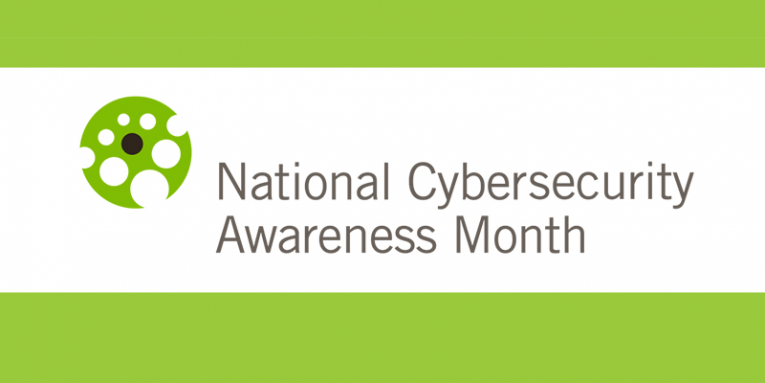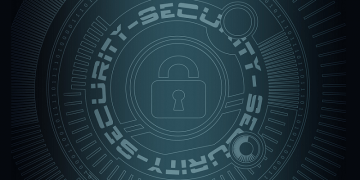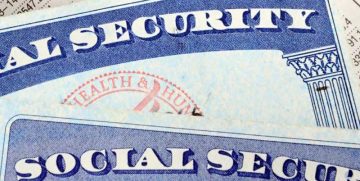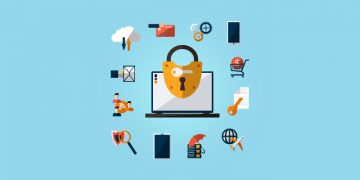It's Cybersecurity Awareness Month. Perfect Time to Take Full Control of Your Security

You know that you can no longer ignore cybersecurity when the Department of Homeland Security and the National Cyber Security Alliance (NCSA) make it a point to have an annual National Cybersecurity Awareness Month (NCSAM). This October marks the 15th NCSAM since its inception in 2004 in the USA. It shows how important it is to be aware of all the potential cybersecurity issues. If government organizations launch such campaigns, it is already a matter of national security. At the same time, it also means that we’re all in this together, and we have to work hand in hand if we want to know how to ensure cybersecurity.
Table of Contents
What Is the Focus of NCSAM 2018?
Every October the Department of Homeland Security and the NCSA work together to reach out to public and private entities. Their goal is to raise general awareness about cybersecurity by offering guidelines and tips that help everyone stay safe online.
Although the aim of NCSAM is to help people learn how to ensure cybersecurity, the manner in which that is done may differ every year. In 2018, NCSAM is divided into four weeks that have four different themes. The themes are as follows:
- Week 1: Make Your Home a Haven for Online Safety
- Week 2: Millions of Rewarding Jobs
- Week 3: It’s Everyone’s Job to Ensure Online Safety at Work
- Week 4: Safeguarding the Nation’s Critical Infrastructure
From here, we would like to talk more about what each week entails, based on the information shared by the NCSA.
Cybersecurity at Home
The first week of October is already behind us, but it is never too late to pay attention to your online security at home. Everyone should know at least the basic guidelines that can teach them how to ensure cybersecurity. Of course, it often seems that we can leave online security to security specialists and reliable antispyware programs, but NCSAM is there to remind you that you also have to work towards making your online environment safe.
NCSA points out that as parents, we are also responsible for our children’s safety online. And when you think of it, that makes sense, doesn’t it? After all, we tend to say to our children that they shouldn’t talk to strangers or that they should wait for the green light before they cross the street, but the same rules apply to the cyberspace as well.
The youngest generations are exposed to the cyber world since very early on, now more than ever. And when kids encounter this cyber information, they have to learn how to differentiate between benign and potentially harmful practices. Thus, the first week of NCSAM was there to introduce cybersecurity essentials for the entire family.
Career in Cybersecurity
Since it is a matter of national security, it is clear that the sector that requires new cybersecurity specialists is only growing. And it is expected to grow further, so during the 2nd week of the month, the Department of Homeland Security and NCSA want the public and the businesses to pay attention to many opportunities that can help us educate students of all ages on the field of cybersecurity.
At first glance, it might not look like a very attractive theme because it focuses on something long-term, and perhaps it does not give an immediate result, especially if you are interested in finding out how to ensure cybersecurity right now. However, it is important to motivate parents and teachers to learn more about the entire field because they are the ones who can, later on, inspire their children and students to pursue a career in cybersecurity.
Online Safety at Work
The 3rd week is probably the most important and relevant to businesses and individual computer users. All of us know that we should have a reliable antispyware program installed on our computer systems. We know that we should keep an external backup of our files, and we do know that we have to be careful about what we click online. Nevertheless, human error is still the main reason businesses, and individual users get infected with malware or experience data thefts.
Thus, businesses have to educate their employees about the potential threats and how to avoid them. And individual users can use the 3rd week of October to find out more about the newest methods employed by cyber criminals to attack their victims. The cyber crime angle shifts together with time. If several years ago we had to deal mostly with fake antispyware applications that masqueraded as genuine security programs; these days, malware programs target mobile applications and even individual users via phishing attacks. Not to mention that encryption ransomware pandemic is at an all-time high. Hence, the importance of education in the matter of cyber security cannot be overlooked.
Matters of National Security
According to NCSA, our daily life depends on sixteen sectors of critical infrastructure. These sectors are responsible for supplying water, food, financial services, communications, power, and so on. The point is that this system is operated via the Internet, and so it can be disrupted by someone who hacks that system. While it is the role of the governed and the respectable authorities to look after these infrastructures, the 4th week of NCSAM will emphasize the aspects in which the public can help keep these sixteen sectors safe.
The idea that most of our lives are governed by the Internet and cybersecurity might be quite hard to grasp, but the fact that you can be a part of it shows that every single person matters in our journey to ensure national cyber security.
It starts with the little things. The apps you download on your phone, the websites you visit, the passwords you make for your online accounts, and then it grows into your family’s online security, your everyday infrastructure, and then eventually into the matters of national security. The bottom line is that everyone has a role in this, and if we are aware of what we are supposed to do, we can at least be sure that the events of NCSAM weren’t organized in vain. After all, it is our shared responsibility to secure the Internet.








